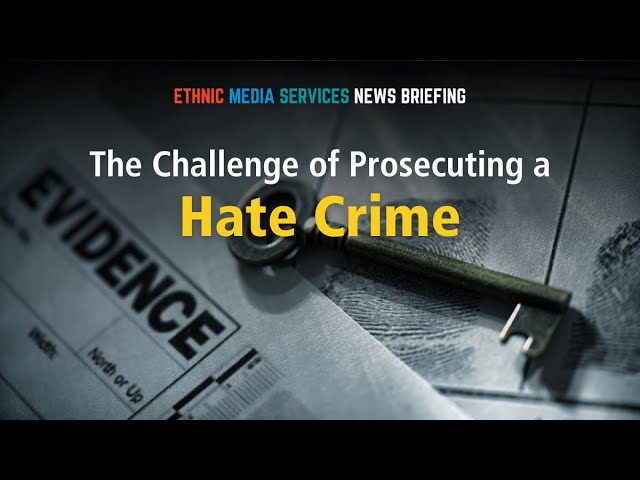Vidya Sethuraman
India Post News Service
In 2023, a total of 1,970 hate crimes were reported by law enforcement agencies in California. But only 5 actually went to trial, according to data from the California Attorney General’s Office. In 2021, when the state was experiencing an alarming spike in hate violence, just one case went to trial. Black people are overwhelmingly the targets of hate crimes, while Jewish people, Muslims, and the LGBTQ community are also experiencing a rise in bias-motivated attacks.
Hate crimes are notoriously difficult to prove, says California Attorney General Rob Bonta, echoing the comments of prosecutors throughout the nation. Speakers at the EMS briefing included two victims who unsuccessfully tried to get hate crime charges added to their perpetrators’ cases.
Monthanus Ratanapakdee, whose father was killed in what appeared to be a hate crime, said the case attracted widespread attention on social media and became the epitome of the wave of anti-Asian hatred. The family is still waiting for justice. She recalled that her father was just taking a walk in the morning when a man suddenly ran over and knocked him to the ground, causing him to suffer serious head injuries and die. Although the suspect was arrested shortly after the incident, the case has not yet received a fair trial. The prosecutor said that the trial process may take eight to 10 years, and hate crime charges have not been applied due to insufficient evidence. She called on the Asian community to unite and support the judicial system to ensure that similar incidents will not happen again.
Kunni, a bartender, said on the night she was attacked, she asked several customers to leave the bar while cleaning because the store was about to close. As a result, a customer suddenly attacked her with racial slurs and even sprayed her with pepper spray and shouted “Go back to your country”. But when the case was handed over to prosecutors, hate crime charges were not established. Prosecutors argued that the attack on Kunni did not constitute a hate crime because there was insufficient evidence that the attacker was motivated solely by racial bias. In the end, the suspect was not convicted of a felony because he had a child.
Erin West, Santa Clara County Deputy District Attorney has 26 years of experience in prosecuting hate crime cases, shared her views. She said that the conviction of a hate crime requires not only proof of the crime itself, but also proof that the crime was motivated by prejudice against the victim’s race, religion, gender, etc. This requires very strong evidence, which is often difficult to obtain. She pointed out that prosecutors must consider a variety of factors when reviewing a case, including the strength of the evidence and whether it can stand up in court. Professionals are calling for the justice system to be reformed to better cope with the challenges of hate crime cases.
Also Read: Spike in Anti Indian Hate Crime cases, Cause worries







